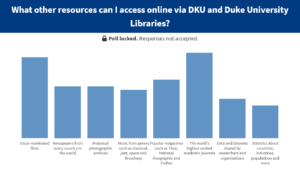by Gina Brander, Saskatchewan Polytechnic Library
The ongoing Access Copyright lawsuit against York University and anticipated amendments to the Copyright Act have made many institutions increasingly vigilant about copyright compliance. Some have responded by urging or requiring faculty to submit course materials for copyright review. Others have ramped up copyright training and education among faculty and staff.
With these approaches in mind, how can we ensure that faculty use, or even know about, the copyright services and training available to them? Instructors select materials and design their courses with varying levels of autonomy depending on their school, department and/or program. As a result, messaging isn’t always effectively communicated from the top down to everyone who needs to hear it, such as non-faculty and part-time instructors (Zerkee, 2017). And while mandatory copyright reviews of course materials ensure compliance, not all institutions have the resources to perform these reviews.
Mandatory copyright training is an alternative approach that has been cautiously explored. A recent survey of Canadian universities found that only 13.6% of respondents’ institutions required instructors to undertake copyright training or education (Zerkee, 2017). Canadian colleges and polytechnics appear to be following a similar track. A number of Ontario colleges in partnership with Heads of Libraries and Learning Resources (HLLR) collaboratively developed a copyright education online learning module, the first of which launched in 2013 (Copyright Literacy Ontario Colleges, n.d.). Yet few of the participating colleges have made these modules required training (Buckley, Muller, Peters, & Shannon, n.d.).
It would seem that mandatory copyright training is the exception rather than the rule in Canadian post-secondary institutions. There are many reasons for this—lack of resources, other institutional priorities, difficulties enforcing non-legislated materials, service culture, etc. For copyright offices firmly planted in the library, enforced education of any kind may feel counterintuitive.
Yet still I must ask—what is the best way to ensure that faculty and staff are equipped with the knowledge and tools they need to make informed, deliberate copyright choices? Perhaps some institutions will find more success and buy-in by promoting rather than enforcing copyright training. Even so, making basic training a requirement of employment is a surefire way for an institution to send the unequivocal message (both outwardly and inwardly) that copyright compliance is everyone’s responsibility. And that’s an important message.
References
Buckley, P., Muller, J., Peters, J., & Shannon, M. (n.d.). Copyright literacy in Ontario colleges [PowerPoint presentation]. Retrieved from https://copyrightliteracy.wordpress.com/about/
Copyright Literacy Ontario Colleges. (n.d.). Implementing. Retrieved from https://copyrightliteracy.wordpress.com/implementing/
Zerkee, J. (2017). Approaches to copyright education for faculty in Canada. Partnership: The Canadian Journal of Library and Information Practice and Research, 11(2). 1-28. https://doi.org/10.21083/partnership.v11i2.3794





 Jessie Loyer is Cree-Métis and a member of Michel First Nation. She is a liaison librarian at Mount Royal University in Calgary, a guest on Treaty 7 and Blackfoot territory. Her research looks at Indigenous perspectives on information literacy, supporting language revitalization, and creating ongoing research relationships using a nêhiyaw minâ otipêmisiw concept of kinship.
Jessie Loyer is Cree-Métis and a member of Michel First Nation. She is a liaison librarian at Mount Royal University in Calgary, a guest on Treaty 7 and Blackfoot territory. Her research looks at Indigenous perspectives on information literacy, supporting language revitalization, and creating ongoing research relationships using a nêhiyaw minâ otipêmisiw concept of kinship.